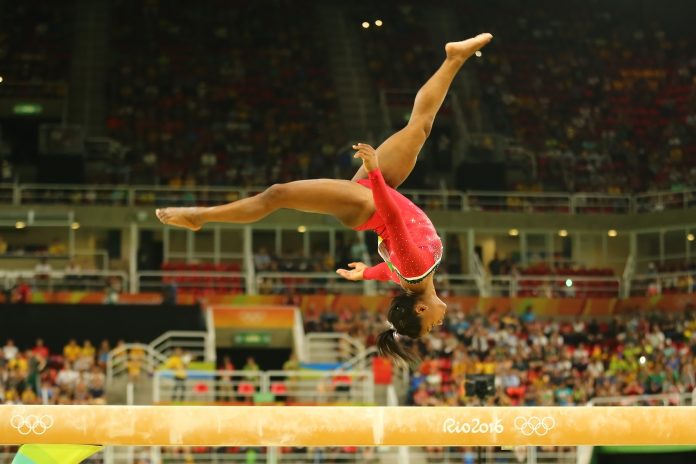Even at the Olympics in 2021, women and girls are oversexualised and face significant obstacles – now, researchers say that one third of parents believe that boys are better at sports
In Tokyo, women and girls represent some of the most boundary-breaking talent in the sporting world. Simone Biles, with 30 Olympic and World Championship medals, sat out from her last event due to mental health. The champion gymnast, regarded as one of the iconoclasts of the sport, set new precedents for mental health in the Black community and beyond it.
While she is one of the most prominent and successful athletes in the US, girls are still perceived as less talented than boys – especially when it comes to sports.
Over 3,000 in the study
The researchers surveyed over 3,000 boys and girls, aged 7 to 1, and their guardians across the country.
They were surprised to find that roughly one third of parents (32%) believed that boys are better at sports than girls. Parents of youth who have never played sports are more likely to believe that girls are not as competitive as boys, and that sports are more important to boys than girls.
“The average age that kids enter sports is 6, which requires heavy parental involvement,” said Philip Veliz of the University of Michigan School of Nursing.
“If you believe that boys are better than girls, you may be taking girls to a different activity or not doing sports at all.”
43% of girls have never played sports
Girls (43%) are more likely to have never played sports than boys (35%) and less likely to be currently playing sports. They found that 36% of girls compared to nearly 46% of boys. Overall, about 40% of youth surveyed said they currently play sports.
According to the study, African American and low-income youths overall, but especially girls, were least likely to be current players, and most likely to have never played or dropped out.
Boys and girls both reported being teased, but for girls, the teasing was worse for teens than during their younger years.
Veliz further commented: “Sport is the most popular extracurricular activity in the United States for both boys and girls.
“Yet, we see this gender gap in participation persist, and parents may be driving some of this.”











